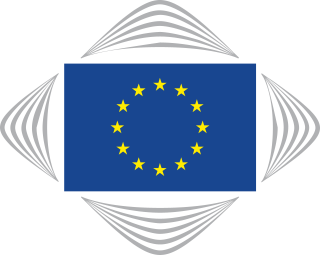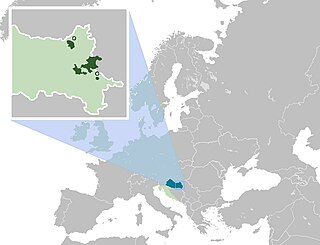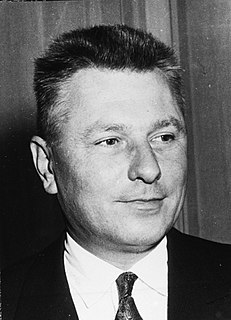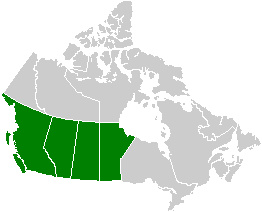 W
WReferendums on departmental autonomy statutes were held in four departments of Bolivia—Beni, Pando, Santa Cruz, and Tarija—in May and June 2008. These four departments, known as the Media Luna, voted in favor of autonomy in the June 2006 elections. The National Electoral Court had blocked the referendums, along with the proposed referendum on Morales's new constitution. The referendums were also unconstitutional, as the constitution in force at the time had no provisions for departmental autonomy. Under the Framework Law on Autonomy, passed in 2010, the autonomy statutes must be harmonized with the 2009 Constitution before being enacted.
 W
WAn autonomy referendum was held in Tarija Department in Bolivia on 22 June 2008, following the autonomy referendum held in Santa Cruz Department on 4 May 2008 and the autonomy referendums held in Beni Department and Pando Department on 1 June 2008. The referendum was approved with over 80% in favour, though most supporters of President Morales did not vote.
 W
WThe California Freedom Coalition is a political group advocating for the political, economic, and social empowerment of Californians. It supports universal healthcare for Californians, greater representation for California in the U.S. Congress, and more funding for education in California, as well as the possibility of Californian independence.
 W
WThe European Committee of the Regions (CoR) is the European Union's (EU) assembly of local and regional representatives that provides sub-national authorities with a direct voice within the EU's institutional framework.
 W
WThe Group of the European Radical Alliance (ERA) was a heterogeneous political group with seats in the European Parliament between 1994 and 1999. It was formed by regionalist parties form the former Rainbow Group, although its largest and dominant member party was the French Energie Radicale.
 W
WFrance is divided into eighteen administrative regions, of which thirteen are located in metropolitan France, while the other five are overseas regions.
 W
WThe Joint Council of Municipalities in Croatia is an elected consultative sui generis body which constitutes a form of cultural self-government of Serbs in the eastern Croatian Podunavlje region. The body was established in the initial aftermath of the Croatian War of Independence as a part of the international community's efforts to peacefully settle the conflict in self-proclaimed Eastern Slavonia, Baranya and Western Syrmia. The establishment of the ZVO was one of the explicit provisions of the Erdut Agreement which called upon the United Nations to establish its UNTAES transitional mission.
 W
WJura separatism is a regionalist autonomist movement in the Bernese Jura of Switzerland.
 W
WKapampangan Separatism is a regionalist and separatist idea promoting independence for the province of Pampanga and surrounding territories where the Kapampangan people reside.
 W
WA Mäslihat is a local representative body (parliament) in Kazakhstan that is elected by a population of a region, district and city.
 W
WThe Media Luna or Media Luna Ampliada refers to a group of four departments – Santa Cruz, Beni, Pando, and Tarija – in Bolivia which are home to a greater proportion of opponents to the national government led by Evo Morales and the Movement for Socialism (MAS) than the rest of the country. Pando has seen increasing support for MAS since 2009, while Tarija was initially supportive but has opposed MAS in every election after 2014. All of the departments in the Media Luna are predominantly mestizo with white minorities(predominantly ethnic German), unlike the predominantly indigenous departments in the Andean region.
 W
WThe Mouvement normand is a regionalist political organisation from Normandy, in Northern France.
 W
WJuan Olazábal Ramery (1860–1937) was a Spanish Traditionalist politician, first as a Carlist, then as an Integrist, and eventually back in the Carlist ranks. In 1899-1901 he served in the Cortes, and in 1911-1914 he was a member of the Gipuzkoan diputación provincial. Between 1897 and 1936 he managed and edited the San Sebastián daily La Constancia. He is best known as the nationwide leader of Integrism, the grouping he led between 1907 and 1931.
 W
WMarcelino Oreja Elósegui (1894–1934) was a Spanish entrepreneur, Catholic activist and Carlist politician.
 W
WJosé Luis de Oriol y Urigüen, 2nd Marquis of Casa Oriol (1877–1972), was a Spanish businessman, architect and politician. As an architect he designed few historicist residential buildings, some of them very prestigious today. As a businessman he was the moving spirit behind Hidroeléctrica Española and Talgo. As a politician he served as Conservative and Traditionalist MP, growing into a local Álava tycoon.
 W
WJuan Víctor Pradera Larumbe (1872–1936) was a Spanish political theorist and a Carlist politician.
 W
WRenardism refers to a political ideology in Belgium based on the thinking of the trade union leader André Renard (1911–62). Popular in parts of Wallonia, Renardism combined elements of syndicalism and regionalist politics. It ultimately sought the transformation of Belgium into a federal state.
 W
WA referendum to approve the autonomy statute of Santa Cruz Department of Bolivia was held on 4 May 2008. The vote resulted from strains between the Prefecture of Santa Cruz and President Evo Morales. The referendum was declared illegal and unconstitutional by the National Electoral Court. Final results from the referendum showed that 85.6% of participating voters supported autonomy. Abstention rates were 37.9%. Partisans of the Movement for Socialism called for a boycott of the vote, and the Guarayo, Guaraní, Chiquitano, Ayoreo, Yuracaré-Moxeño indigenous peoples were urged to reject holding the vote in their territories.
 W
WManuel Senante Martínez was a Spanish Traditionalist politician and publisher, until 1931 adhering to the Integrist current and afterwards active in the Carlist ranks. He is known mostly as the longtime editor-in-chief of the Madrid daily El Siglo Futuro (1907-1936). During 8 consecutive terms he served as the Integrist deputy to the Cortes (1907-1923).
 W
WThe Socialist Party is a social democratic French-speaking political party in Belgium. As of the 2014 elections, it is the second largest party in the Belgian Chamber of Representatives and the largest Francophone party. The party is led by Paul Magnette. The party supplies the Minister-president of the French Community, and the Brussels-Capital Region. In the German-speaking community, the party is known as the Sozialistische Partei (SP).
 W
WIn the culture of the United States, the idea of Southernization came from the observation that Southern values and beliefs had become more central to political success, reaching an apogee in the 1990s, with a Democratic President and Vice President from the South and Congressional leaders in both parties being from the South. Some commentators said that Southern values seemed increasingly important in national elections through the early 21st century. American journalists in the late 2000s used the term "Southernization" to describe the political and cultural effects.
 W
WBoth the perceived nationhood of Spain, and the perceived distinctions between different parts of its territory are said to derive from historical, geographical, linguistic, economic, political, ethnic and social factors.
 W
WUkraine is administratively divided into 27 regions, one of which is an autonomous republic, the Autonomous Republic of Crimea. Its administrative status is recognized in the Ukrainian Constitution in Chapter X: Autonomous Republic of Crimea and is governed in accordance with laws passed by Ukraine's parliament, the Verkhovna Rada. Following the 2014 Crimean crisis the Autonomous Republic of Crimea was annexed by Russia as the Republic of Crimea. In 2016, the UN General Assembly reaffirmed non-recognition of the annexation and condemned "the temporary occupation of part of the territory of Ukraine—the Autonomous Republic of Crimea and the city of Sevastopol".
 W
WIn Canadian politics, Western alienation is the notion that the Western provinces – British Columbia, Alberta, Saskatchewan and Manitoba – have been alienated, and in extreme cases excluded, from mainstream Canadian political affairs in favour of the central provinces of Ontario and Quebec. Western alienation claims that these latter two are politically represented, and economically favoured, more significantly than the former, which has given rise to the sentiment of alienation among many western Canadians.